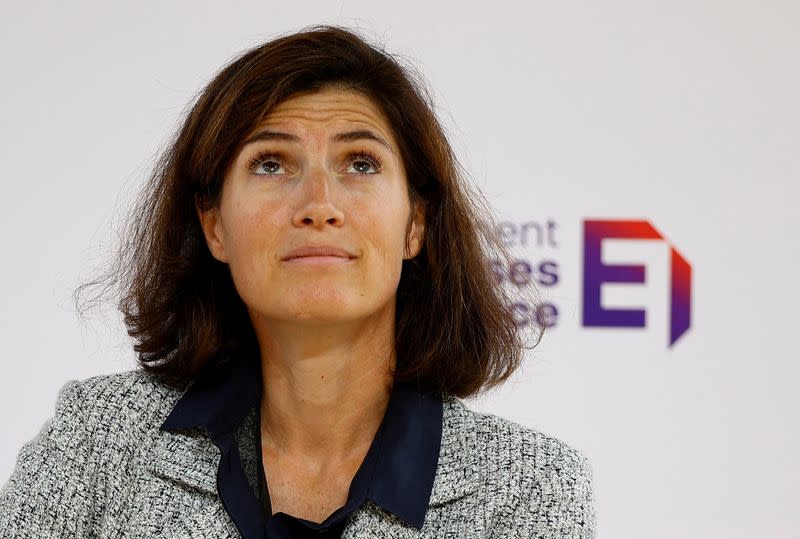Power cuts could affect emergency calls in France this winter - Orange CEO
By Mathieu Rosemain and Elizabeth Pineau
PARIS (Reuters) -Emergency phone calls may not be possible in parts of France if there are prolonged power cuts this winter, CEO of the country's No. 1 telecoms operator Orange said on Wednesday, as the prospect of energy rationing looms amid the war in Ukraine.
The stark warning from Christel Heydemann contrasts with the French government's reassuring tone on the matter and highlights the challenges the telecoms industry faces in keeping mobile services running in the event of prolonged power cuts.
"If, in a geographical area, (mobile network services) are turned off for two hours, there will be no access to the emergency number services for a while," Heydemann told French lawmakers at a hearing in the Senate.
"It is illusory to imagine that we'll be able to maintain service to all French people in the event of power cuts," she said.
Telecoms industry officials told Reuters in September they feared power rationing - a possibility following a plunge in energy supplies from Russia - could knock out parts of the mobile network across Europe, forcing companies and governments to try to mitigate the impact.
Executives said at the time there were not enough back-up systems in many European countries to handle widespread power cuts.
On Wednesday, Heydemann said there wasn't enough time to install back-up batteries on the thousands of mobile sites for this winter. It would take five years, she said.
Heydemann, who took over the reins at Orange in April, said the company had been running tests on its mobile network in France to evaluate and anticipate the risks of power outages.
Under current scenarios being discussed with the government, Orange would be alerted at 5 p.m. (1600 GMT) the day before a power cut and would be given the exact location.
She said Orange was trying to get that information 24 hours ahead of outages to get technicians on the ground to work as soon as possible.
"I fear that our fellow citizens and the French will discover that telecom networks depend on electricity," she said.
A government source played down Heydemann's comments.
"The operators put pressure so that we don't cut their antennas, there's a kind of arm wrestling," the source told Reuters.
"It's been a year and a half that the government is working on the subject, we are in contact with the (telecoms) operators," the source said.
Orange's Heydemann also said the company and the industry were in close contact with the country's electricity distributor Enedis, a subsidiary of utility EDF.
A spokesperson for the French ministry of digital affairs, in charge of telecoms services, declined to comment.
"The priority for Enedis and public authorities is to help telecom operators preserve access to emergency numbers... in the event of exceptional power shedding," Enedis said.
"Talks are ongoing... to find the best possible solutions to limit the impact of potential temporary power cuts," it added.
Heydemann's warnings contradict the more upbeat tone held so far by the French government.
"If there were power supply issues at a given time, there are what we call 'resource antennas' (that would allow) for all emergency numbers to operate," government spokesperson Olivier Veran said on Tuesday.
Only a few thousands mobile antennas would be completely shielded from potential power cuts at this stage, a telecoms industry source said, thus covering a fraction of the population and of the territory.
(Reporting by Mathieu Rosemain and Elizabeth Pineau; Additional reporting by Benjamin MalletEditing by Josephine Mason and Mark Potter)

 Yahoo Finance
Yahoo Finance 

